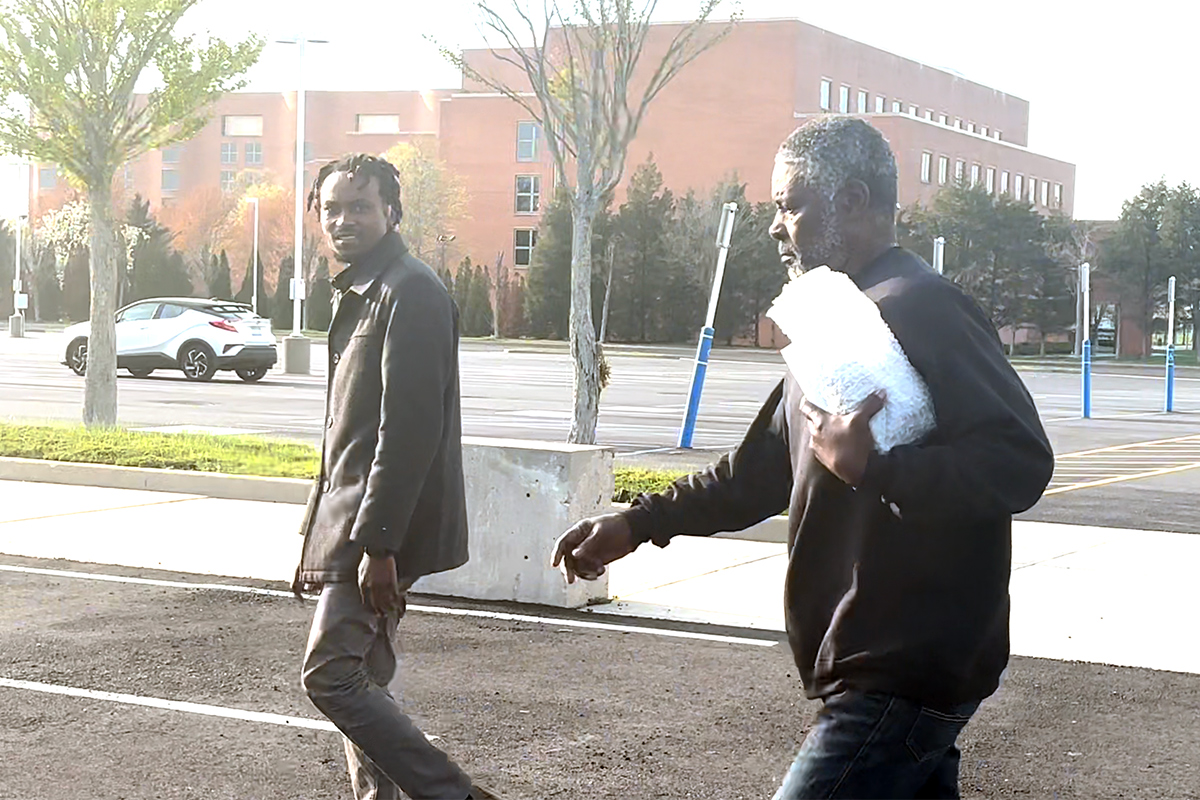It all began at Hickam Field, on the Hawaiian island of Oahu, just after Pearl Harbor was bombed by the Japanese in 1941, bringing the U.S. into World War II.
Hickam was the place where Brooklyn native Tobias Infante was stationed after being drafted, according to his grandson, Sean Infante. Tobias Infante was going to be trained as a bombardier, but he came down with pneumonia, and after he recovered, he was assigned instead to work in a small Army shop on the island repairing typewriters.
Central Business Systems Is Born
Out of those long-ago days, a Long Island company was born, Central Business Systems in Melville, which this year is celebrating its 75th anniversary, making it one of the oldest businesses in Nassau and Suffolk counties, said Peter Goldsmith, chairman of ListNet, a nonprofit that promotes technology in the region.
The giant companies Long Island was known for — Grumman, Fairchild Republic, Sperry and others — are long gone, victims of defense industry consolidation and the end of the Cold War. There are still some old names around, such as the electronics retailer P.C. Richard, which got its start in 1909 by Peiter Christian (“P.C.”) Richard.
But in terms of technology companies, Central Business Systems is just about the oldest.
“The grandchildren of the founders” of some of the older tech companies “are now running those businesses,” Goldsmith said.
And that is exactly the case at Central Business. Sean Infante, the grandson of Tobias Infante, is now a co-owner of the company, along with Michael Chambers, the company’s president. Chambers and Infante are life-long friends, both graduates of Dowling College.
Central Business, a VAR (value-added reseller) employs about 50 people and says its sales are nearly $10 million annually. It was a two-person shop when it got its start.
To celebrate its 75th anniversary, the company hosted a dinner party at Del Vino Vineyards in Fort Salonga for its employees and their families. It invited about 170 guests to a Yankees-Mets game at Citi Field, and donated $20,000 to SCO Family of Services, a nonprofit in Garden City.
“Right after World War II, Long Island was the right place to open a business,” Sean Infante said in an interview in the company’s boardroom. “Long Island started to boom. Grumman was here. There was a lot of business from Grumman’s subcontractors.”
Army veteran Tobias Infante and a business partner, Robert Zolinhoffer, founded Central Business in 1948 in Seaford. Two years later, they moved the company to Baldwin, and as the business began to grow, the company in 1989 moved to Farmingdale.
Twelve years ago, it relocated to Melville.
Asked what his grandfather would think of the company these days, Sean Infante said the founder would find it “a little bit crazy.”
Central Business Systems Moves Into the Digital Age
While there are still typewriters around, they are only for the purposes of display, placed near the receptionist’s desk. These days, Central Business has several key roles: It manages the computer systems of other companies, and plays the part of cybercop seeking out bad actors, better known as hackers, in computer systems. But what is emerging as a big part of the business is working with artificial intelligence.
AI, Sean Infante said, is the part of the company his grandfather would most likely find crazy, as do others these days who marvel at the ability of the systems to communicate with humans.
“AI is on top of our minds,” said Chambers, who joined the company in 2001. “We do consulting. We do security analytics. We look for what we call bad actors, and we monitor the network for threats of all kinds.”
Central Business advises companies on the use of AI, and top Central Business executives candidly admit they often find AI as mysterious, complex, and as difficult to grasp as most others.
“It’s all something nobody expected,” Chambers said.
He and other Central Business executives said the major concern is how human AI one day will become. and how best to use its abilities and advise clients not to fear it, but to maximize its abilities.
Right now, the Central Business executives said, AI systems, such as ChatGPT, lack the emotions of human beings. But, they ask, the question is whether that will always be the case, and what that might mean not only for businesses, but for people in general as well.
Sean Infante noted that while AI systems are capable of writing business letters, press releases and other business material, the prose lacks any kind of style. But it may not be too long, he said, before the systems are able to punch up their work.
“At a certain point,” he said, “we may not be able to control the systems.”
But, said Chambers, “We have to embrace AI. It may cost jobs and find a way of doing a lot of things, but it will have a place in business and society, and we must find ways to benefit from it.”

































